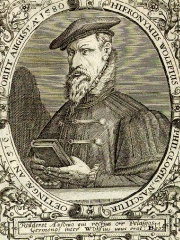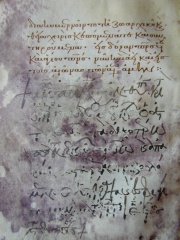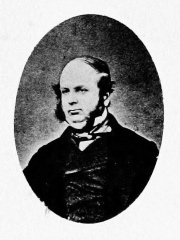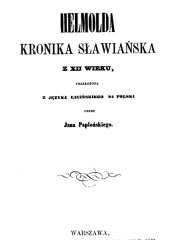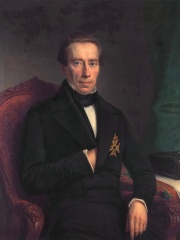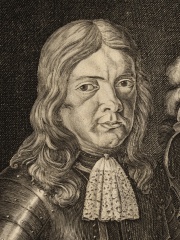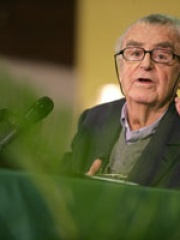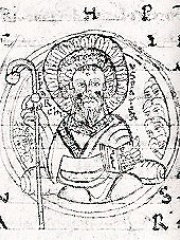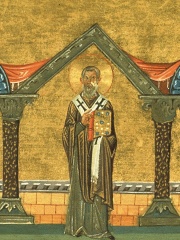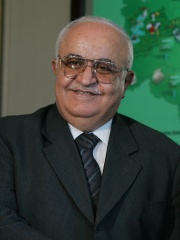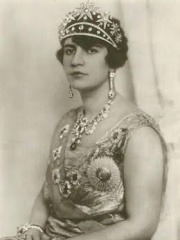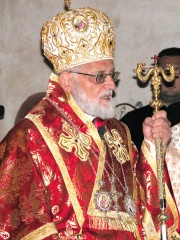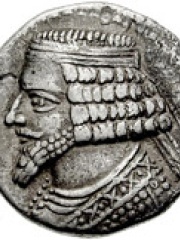Historian
Evagrius Scholasticus
536 - 594
EN.WIKIPEDIA PAGE VIEWS (PV)

 Evagrius Scholasticus
Evagrius Scholasticus
His biography is available in 27 different languages on Wikipedia (up from 26 in 2024). Evagrius Scholasticus is the 147th most popular historian (down from 138th in 2024), the 110th most popular biography from Syria (down from 86th in 2019) and the 4th most popular Syrian Historian.
Memorability Metrics
Page views of Evagrius Scholasticus by language
Among Historians
Among historians, Evagrius Scholasticus ranks 147 out of 561. Before him are Hieronymus Wolf, Michael Attaleiates, Henry Thomas Buckle, Helmold, Matthew of Edessa, and Johan Rudolph Thorbecke. After him are Richard Pipes, Johann Weikhard von Valvasor, Shlomo Sand, Jean-Pierre Vernant, Adémar de Chabannes, and Doukas.
Most Popular Historians in Wikipedia
Go to all RankingsHieronymus Wolf
1516 - 1580
HPI: 63.69
Rank: 141
Michael Attaleiates
1021 - 1080
HPI: 63.62
Rank: 142
Henry Thomas Buckle
1821 - 1862
HPI: 63.46
Rank: 143
Helmold
1120 - 1177
HPI: 63.37
Rank: 144
Matthew of Edessa
1100 - 1144
HPI: 63.27
Rank: 145
Johan Rudolph Thorbecke
1798 - 1872
HPI: 63.26
Rank: 146
Evagrius Scholasticus
536 - 594
HPI: 63.17
Rank: 147
Richard Pipes
1923 - 2018
HPI: 63.16
Rank: 148
Johann Weikhard von Valvasor
1641 - 1693
HPI: 63.15
Rank: 149
Shlomo Sand
1946 - Present
HPI: 63.14
Rank: 150
Jean-Pierre Vernant
1914 - 2007
HPI: 63.13
Rank: 151
Adémar de Chabannes
989 - 1034
HPI: 63.10
Rank: 152
Doukas
1400 - 1500
HPI: 63.08
Rank: 153
Contemporaries
Among people born in 536, Evagrius Scholasticus ranks 2. Before him is Agathias. Among people deceased in 594, Evagrius Scholasticus ranks 1.
Others Born in 536
Go to all RankingsOthers Deceased in 594
Go to all RankingsIn Syria
Among people born in Syria, Evagrius Scholasticus ranks 110 out of NaN. Before him are John X of Antioch (1955), Eulogius of Alexandria (501), Muhammad Naji al-Otari (1944), Soraya Tarzi (1899), Dawoud Rajiha (1947), and Alciphron (200). After him are Ibn Asakir (1105), John Moschus (550), Gregory III Laham (1933), Numenius of Apamea (200), Tiridates II of Parthia (-100), and Walid Muallem (1941).
Others born in Syria
Go to all RankingsJohn X of Antioch
RELIGIOUS FIGURE
1955 - Present
HPI: 63.92
Rank: 104
Eulogius of Alexandria
RELIGIOUS FIGURE
501 - 608
HPI: 63.89
Rank: 105
Muhammad Naji al-Otari
POLITICIAN
1944 - Present
HPI: 63.82
Rank: 106
Soraya Tarzi
POLITICIAN
1899 - 1968
HPI: 63.50
Rank: 107
Dawoud Rajiha
POLITICIAN
1947 - 2012
HPI: 63.33
Rank: 108
Alciphron
WRITER
200 - 200
HPI: 63.19
Rank: 109
Evagrius Scholasticus
HISTORIAN
536 - 594
HPI: 63.17
Rank: 110
Ibn Asakir
RELIGIOUS FIGURE
1105 - 1176
HPI: 63.08
Rank: 111
John Moschus
WRITER
550 - 619
HPI: 63.04
Rank: 112
Gregory III Laham
RELIGIOUS FIGURE
1933 - Present
HPI: 63.03
Rank: 113
Numenius of Apamea
PHILOSOPHER
200 - 200
HPI: 62.99
Rank: 114
Tiridates II of Parthia
POLITICIAN
100 BC - 100 BC
HPI: 62.98
Rank: 115
Walid Muallem
POLITICIAN
1941 - 2020
HPI: 62.73
Rank: 116
Among Historians In Syria
Among historians born in Syria, Evagrius Scholasticus ranks 4. Before him are Ibn Kathir (1301), Al-Dhahabi (1274), and Nicolaus of Damascus (-64). After him are Malchus (450), and Abu Shama (1203).
Ibn Kathir
1301 - 1373
HPI: 74.60
Rank: 1
Al-Dhahabi
1274 - 1348
HPI: 68.82
Rank: 2
Nicolaus of Damascus
64 BC - 4
HPI: 68.31
Rank: 3
Evagrius Scholasticus
536 - 594
HPI: 63.17
Rank: 4
Malchus
450 - Present
HPI: 58.73
Rank: 5
Abu Shama
1203 - 1267
HPI: 55.55
Rank: 6
